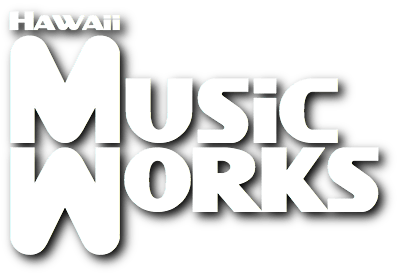🎵 WHY WE ENCOURAGE MISTAKES IN MUSIC CLASS
Hawaii MusicWorks
Spoiler: They're not just allowed — they're required.
You know that moment when a kid hits the wrong note and immediately freezes, winces, or apologizes?
We see it all the time.
Sometimes they laugh it off.
Sometimes they mutter, “Ugh, I’m so bad at this.”
Sometimes they shut down altogether.
And every time, we say the same thing:
“Good. Now we’ve got something to work with.”
At Hawaii MusicWorks, we don’t just tolerate
mistakes — we encourage
them. Because if you’re not messing up, you’re not really learning. And let’s be real — no one ever nailed a guitar solo by playing it safe.
💥 Mistakes = Data
Mistakes are information. They tell us:
- Where the student’s confidence dips
- What needs more practice
- Where muscle memory hasn’t kicked in yet
If a student never messes up, we assume they’re either (A) not being challenged enough or (B) hiding behind what’s easy.
🧑🎓 A Note to Parents: Please Don’t Do the Homework
We say this with love:
If your child turns in a perfectly written theory assignment, and you “helped a little,” we can usually tell.
But here’s the thing — we don’t want
perfect papers. We want to see what they don’t understand yet.If everything is filled out correctly but they can’t explain it in class, we know it’s not sticking.
Mistakes on homework help us figure out where to jump in and reteach.
Correct answers done by someone else? Not so much.
So please: resist the urge to swoop in and clean things up. Progress is messy, and that’s okay.
(And yes, it’s totally fine to encourage them to try
or review together — just let the learning be theirs.)🧠 What Happens When Kids Avoid Mistakes
Perfectionism can sneak in early — especially in high-achieving kids. And when it does, it gets loud:
- “If I mess up, I’m not good enough.”
- “If I can’t play it right, I shouldn’t play it at all.”
- “I hate this. I’m bad at this. I want to quit.”
We say things like:
- “Cool, let’s break that part down.”
- “Your brain just gave up early — let’s help it stay in the game.”
- “That mistake means you’re in the zone where real progress happens.”
👂 What Mistakes Actually Teach
Here’s what students learn when we let them mess up:
- Resilience – They bounce back instead of crumbling.
- Adaptability – They learn to recover in real time.
- Focus – They start noticing what their fingers, ears, and brain are doing.
- Confidence – Yes, confidence! Because they learn they can mess up and keep going.
🔁 We Model Mistakes Too
Our teachers don’t pretend to be perfect — because we’re not. We flub chords. We forget lyrics. We laugh when things go sideways. We’re also usually the first ones to say, “Oops! Try that again.”)
That modeling gives kids permission to relax. It tells them: “It’s okay to be where you are.”
🧑🎤 Progress Over Perfection
We’re not here to raise musical robots. We’re here to raise confident, expressive, joyful musicians. The kind who:
- Mess up and keep playing
- Take risks
- Get back up when they fall off the rhythm
- Know that perfection isn’t the goal — progress is
And the truth is:
Some of the best performances we’ve ever seen weren’t perfect — but they were real.
So yes, we encourage mistakes in music class. Because mistakes are where the music begins. And that moment when a student messes up, laughs, and keeps going? That’s the stuff of rockstars.
